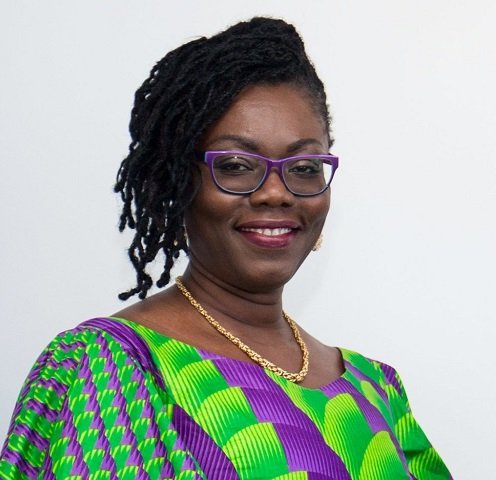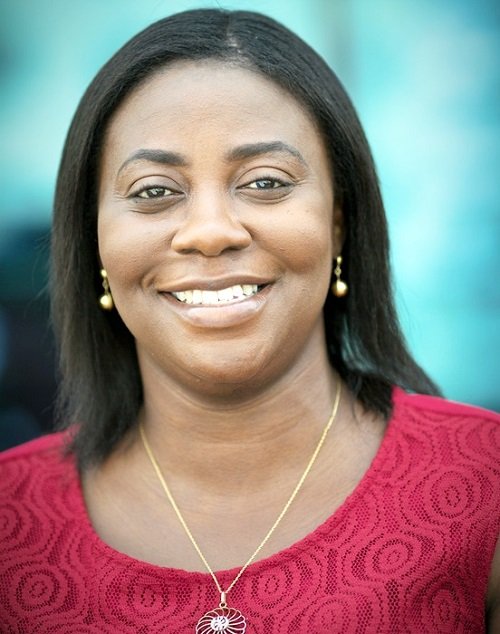Features
Vodafone: ‘Ripping off’ faithful customers?

Per the views expressed by some mobile voice subscribers in Ghana, there is no doubt that Vodafone is currently the telecom company of choice in the country.
Vodafone-Ghana is said to have had about 9.7 million mobile voice subscribers as of January 2021.
Minister of Communication
Executive of Vodafone
Vodafone-Ghana prides itself as the only total communications solutions provider in the country; especially in the areas of mobile, fixed lines, internet, voice and data.
Some telecom industry experts in Ghana also ‘vouch’ that Vodafone-Ghana provides the kind of innovative and responsive service for which the Vodafone Group is recognised worldwide.
But for some time now, some Vodafone mobile voice subscribers claim that the company is ripping them off their sweat.
The reason? For instance, a Vodafone voice subscriber in Cape Coast says; “Vodafone will send SMS to a customer on low-credit indicating: ‘Your balance is low! Get SOS credit of GH¢5 and pay back in your next recharge. Reply “A” to this SMS or dial *505# for more options.’
“If a customer replies ‘A’ to the SMS; Vodafone quickly and excellently responds per another SMS indicating that: ‘GH¢5 has been added to your account and will be deducted from your next recharge or bundle activation. GH¢0.50 has been charged as service fee. Dial *505# anytime for more SOS credit.’
“Then without any hindrance, the customer can activate his or her phone to use for mobile services.”
According to the Cape Coast Vodafone subscriber, some Vodafone customers, including himself, who recharge their accounts with Vodafone RECHARGE CARDS are sometimes ‘ripped off’ when they receive SMS from Vodafone , prompting them that the ‘balance is low.’
For instance, he said, if some customers (including himself) sometimes recharged their low-accounts with GH¢5 Vodafone RECHARGE CARDS, they would receive SMS from Vodafone saying:”Your main balance is GH¢5 valid until so-so-and-so-date.”
The Cape Coast subscriber claims that when some customers (including himself), sometimes attempt to make calls after the confirmation of a successful recharge, “a voice message is received still telling the customer that: ‘Your balance is low. Get SOS credit of GH¢5 and pay back on your next recharge. GH¢0.50 will be charged as service fee. Dial *505# anytime for more SOS credit.’ “
Some of the Accra ‘victims’ said:”When you call the Vodafone help-line to complain, a voice on the line tells you to go to the nearest Vodafone Office for them to address the issue.”
Nii Doodoo, a resident of Weija (Accra) asks:”After Vodafone has inconvenienced you and frustrated your recharge, do you have to waste time again and hire a taxi to a Vodafone Office because of the GH¢5 they have ripped you off?
“Why is it that Vodafone is unable to restore the GH¢5 they have instantly ‘stolen’ from you when you call and complain to them on their help-line?
“After all, the evidence of having ‘stolen’ the GH¢5 is recorded in their system, as per the value of the RECHARGE CARD you loaded but ‘refused’ to reflect on your phone?”
A Takoradi-based Vodafone subscriber who also claims to be a ‘rip-off ‘ victim says, “Vodafone has a huge customer-base so if on daily basis about one thousand (1,000) of its customers are ripped off and you multiply it by GH¢5 ; the total per day is equal to GH¢5,000.
“And if it is for 30 days; GH¢5 X 30 days = GH¢150, 000. And if it continues for six months; it will be GH¢150,000 X 6 and that will be GH¢900,000.
“And for 12 months, it will be GH¢150,000 X 12, which will total GH¢1,800,000. And where will such money be going at the expense of the customer?”
Comparing the Automatic Teller Machines (ATMs) of the banks with the Vodafone system; a ‘victim’ said:”When you insert an ATM card into the machine in an attempt to withdraw a stated amount of money and the money does not come out of the machine but the machine gives you a receipt, deducting the amount from your account; the machine later corrects itself by crediting your account with the deducted amount that never came out from the ATM.”
The victim said, Vodafone can learn from the banks’ ATMs and develop a software that can credit the accounts of Vodafone customers whose RECHARGED CARDS are ‘swallowed’ for free by the Vodafone system, without crediting their accounts with the value of the ‘swallowed’ recharged cards.
Since Vodafone is credited for ‘providing the kind of innovative and responsive service’ to its customers, it is the expectation of this column that the company will swiftly investigate the issues under reference and address them as quickly as possible.
Contact email/ WhatsApp of the author:
asmahfrankg@gmail.com (0505556179)
By G. Frank Asmah
Features
Traditional values an option for anti-corruption drive — (Part 1)
One of the issues we have been grappling with as a nation is corruption, and it has had such a devastating effect on our national development. I have been convinced that until morality becomes the foundation upon which our governance system is built, we can never go forward as a nation.
Our traditional practices, which have shaped our cultural beliefs, have always espoused values that have kept us along the straight and the narrow and have preserved our societies since ancient times.
These are values that frown on negative habits like stealing, cheating, greediness, selfishness, etc. Our grandparents have told us stories of societies where stealing was regarded as so shameful that offenders, when caught, have on a number of instances committed suicide.
In fact, my mother told me of a story where a man who was living in the same village as her mother (my grandmother), after having been caught stealing a neighbour’s cockerel, out of shame committed suicide on a mango tree. Those were the days that shameful acts were an abomination.
Tegare worship, a traditional spiritual worship during which the spirit possesses the Tegare Priest and begins to reveal secrets, was one of the means by which the society upheld African values in the days of my grandmother and the early childhood days of my mother.
Those were the days when the fear of being killed by Tegare prevented people from engaging in anti-social vices. These days, people sleeping with other people’s wives are not uncommon.
These wrongful behaviour was not countenanced at all by Tegare. One was likely going to lose his life on days that Tegare operates, and so unhealthy habits like coveting your neighbour’s wife was a taboo.
Stealing of other people’s farm produce, for instance, could mean certain death or incapacitation of the whole or part of the body in the full glare of everybody. People realised that there were consequences for wrongdoing, and this went a long way to motivate the society to adhere to right values.
Imagine a President being sworn into office and whoever administers the oath says, “Please say this after me: I, Mr. …., do solemnly swear by God, the spirits of my ancestors and the spirits ruling in Ghana, that should I engage in corrupt acts, may I and my family become crippled, may madness become entrenched in my family, may incurable sicknesses and diseases be my portion and that of my family, both immediate and extended.”
Can you imagine a situation where a few weeks afterwards the President goes to engage in corrupt acts and we hear of his sudden demise or incapacitation and confessing that he engaged in corrupt acts before passing or before the incapacitation—and the effect it will have on his successor? I believe we have to critically examine this option to curb corruption.
My grandmother gave me an eyewitness account of one such encounter where a woman died instantly after the Tegare Priest had revealed a wrong attitude she had displayed during the performance on one of the days scheduled for Tegare spirit manifestation.
According to her story, the Priest, after he had been possessed by the spirit, declared that for what the woman had done, he would not forgive her and that he would kill. Instantly, according to my grandmother, the lady fell down suddenly and she died—just like what happened to Ananias and his wife Sapphira in Acts Chapter 5.
NB: ‘CHANGE KOTOKA INTERNATIONAL AIRPORT TO KOFI BAAKO
By Laud Kissi-Mensah
Join our WhatsApp Channel now!
https://whatsapp.com/channel/0029VbBElzjInlqHhl1aTU27
Features
Emotional distortions:A lethal threat to mental health
Emotional distortions can indeed have a profound impact on an individual’s mental health and well-being. These distortions can lead to a range of negative consequences, including anxiety, depression, and impaired relationships.
Emotional surgery is a therapeutic approach that aims to address and heal emotional wounds, traumas, and blockages. This approach recognises that emotional pain can have a profound impact on an individual’s quality of life and seeks to provide a comprehensive and compassionate approach to healing.
How emotional surgery can help
Emotional surgery can help individuals:
Identify and challenge negative thought patterns: By becoming aware of emotional distortions, individuals can learn to challenge and reframe negative thoughts.
Develop greater emotional resilience: Emotional surgery can help individuals develop the skills and strategies needed to manage their emotions and respond to challenging situations.
Improve relationships: By addressing emotional wounds and promoting emotional well-being, individuals can develop more positive and healthy relationships with others.
The benefits of emotional surgery
The benefits of emotional surgery can include:
Improved mental health outcomes: Emotional surgery can help individuals reduce symptoms of anxiety and depression.
Enhanced relationships: Emotional surgery can help individuals develop more positive and healthy relationships with others.
Increased self-awareness: Emotional surgery can help individuals develop a deeper understanding of themselves and their emotions.
A path towards healing
Emotional surgery offers a promising approach to addressing emotional distortions and promoting emotional well-being. By acknowledging the impact of emotional pain and seeking to provide a comprehensive and compassionate approach to healing, individuals can take the first step towards recovery and improved mental health.
Join our WhatsApp Channel now!
https://whatsapp.com/channel/0029VbBElzjInlqHhl1aTU27
BY ROBERT EKOW GRIMMOND-THOMPSON






